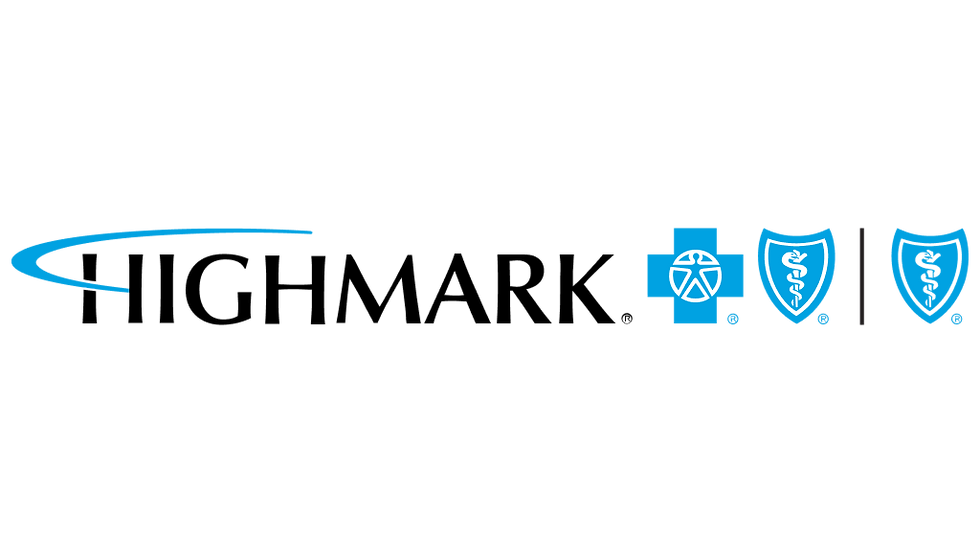
Welcome to Bliss Recovery
Luxury Rehab and Detox Facilities in the Hollywood Hills | Los Angeles
Bliss Recovery provides an unparalleled personalized addiction recovery experience within our exclusive estates in the Hollywood Hills of Los Angeles.
We specialize in comprehensive, evidence-based residential treatment that includes discreet, medically supervised drug and alcohol detox.
Our facilities are designed for ultimate comfort and privacy, offering private suites, gourmet cuisine, and dedicated 24/7 clinical care to support your journey to lasting sobriety.
Locations
Luxury Addiction Treatment Programs in Los Angeles
Specialized detox and residential programs for substance use disorders and co-occurring mental health disorders in the Hollywood Hills of Los Angeles, CA.

Confidential Admissions and Insurance Verification
We prioritize your privacy from the very first contact. Our admissions process is entirely confidential and handled by a dedicated intake specialist. We understand the unique needs of high-profile and executive clients, ensuring all communications and arrangements are made with the utmost discretion. We will also provide a complimentary insurance verification to detail your benefits and coverage quickly and confidentially.

Detox, Residential, and Continued Care Programs (PHP/IOP)
The recovery journey includes medically supervised detox, intensive residential treatment, and structured continued care (PHP/IOP). Client safety and comfort are our highest priorities during detox, with dedicated 24/7 clinical support and monitoring by licensed medical staff to minimize withdrawal symptoms. The residential program utilizes a holistic and evidence-based approach, including intensive individual and group therapy sessions focusing on transformative modalities like Cognitive-Behavioral Therapy (CBT).

24/7 Clinical Support and Monitoring
Client safety and comfort are our highest priorities. Our detox program is medically supervised and personalized to individual needs, ensuring a safe and comfortable transition as the body eliminates substances. We provide dedicated 24/7 clinical support and monitoring by licensed medical and clinical staff. This continuous, compassionate presence ensures immediate attention and minimizes withdrawal symptoms, setting a strong foundation for the comprehensive residential treatment that follows.

Dual Diagnosis Treatment and Individualized Plans
We specialize in comprehensive dual diagnosis treatment, recognizing that addiction is often coupled with co-occurring mental health disorders. Our experienced clinical staff is equipped to treat conditions such as Anxiety Disorders, PTSD, Depression, Bipolar Disorder, and Borderline Personality Disorders. Every client receives a meticulously crafted, individualized treatment plan to address both the substance use and the underlying mental health concerns simultaneously, utilizing an evidence-based approach for transformative, sustained recovery.

Specialized Substance Programs
We offer highly specialized treatment for high-risk substances, including targeted programs for prescription medication dependence and opioid use disorder. These programs leverage advanced, substance-specific therapies, medical protocols, and Medication-Assisted Treatment (MAT) to ensure effective long-term sobriety and relapse prevention. We also provide dedicated programs for methamphetamine use disorder and comprehensive recovery for marijuana addiction.
Comprehensive Programs and Clinical Care
Bliss offers comprehensive, evidence-based addiction treatment programs designed for individuals with complex needs. Our clinical approach integrates advanced therapeutic modalities and medical support, specializing in challenging areas like dual diagnosis and co-occurring mental health disorders. Every program is highly individualized to ensure you receive the precise clinical care necessary for lasting sobriety in our private, supportive setting. We offer targeted specialized treatment programs designed for a variety of substance use disorders, including alcohol, prescription drugs, opioids, and stimulants.
Luxury Residential Mansions and State-of-the-Art Facilities
Experience unparalleled comfort and discretion in our exclusive luxury residential mansions nestled throughout the Hollywood Hills. Our estates are meticulously designed as non-clinical, healing environments to support concentrated addiction recovery. We provide a private, serene setting, ensuring you have the tranquility and space needed to focus entirely on your treatment program without distraction.

Luxury Hollywood Hills Mansions
Bliss is not a clinical facility; we are a private collection of luxury residential mansions nestled discreetly in the Hollywood Hills, Los Angeles. This setting provides the ultimate privacy and exclusivity for high-profile clients seeking discreet addiction treatment. Our estates feature serene gardens, private pools, and spectacular views, offering a peaceful backdrop for healing and rehabilitation.

Private Suites and Luxury Couples Rehab
Our commitment to ultimate comfort and privacy begins with your living space. Each client enjoys an exclusive private suite designed as a serene retreat, fostering a deep focus on recovery. We uniquely offer couples rehab programs, allowing partners to heal together in a secure, non-clinical environment. These luxury accommodations feature high-end furnishings, ample personal space, and stunning views.

Pet-Friendly Luxury Treatment Center
We welcome your pets, recognizing the powerful role they play in emotional and psychological support during the addiction recovery process. Our pet-friendly luxury treatment center ensures that your companion can join you in your private suite, providing comfort and familiarity. This service is a core part of our commitment to holistic and personalized care.

Maintaining Connection: Cell Phone and WiFi Access
We understand the need to balance recovery with personal and professional life. Unlike many centers, we offer managed cell phone and secure WiFi access, allowing you to stay connected with family and essential responsibilities. This policy supports the transition back to daily life while maintaining the structure and serenity of your private luxury retreat during your residential treatment stay.

Holistic Nutritional Support with On-Site Chef
Nutritional healing is fundamental to wellness. Our on-site chef prepares gourmet, custom-designed meals tailored to any dietary need or preference. We focus on restorative and balanced cuisine, providing essential holistic nutritional support that aids in physical and mental recovery from detox through to rehabilitation.

Personalized Care
Bliss Recovery delivers truly personalized addiction treatment by designing each recovery plan around the individual, not a standardized program. Our approach integrates customized detox and residential care, one-on-one therapy, dual diagnosis treatment, and holistic wellness services based on each client’s clinical needs, personal history, and recovery goals. With 24/7 medical support, private accommodations, and a highly individualized therapeutic experience, Bliss Recovery provides luxury rehab care in Los Angeles that emphasizes privacy, dignity, and long-term healing.
Trusted by Leading Insurers












Accreditations & Memberships
Frequently Asked Questions
Yes, Bliss Recovery is pet-friendly
We understand that pets are family and often a vital source of comfort during recovery. At Bliss Recovery, select residences allow approved pets so clients can heal alongside their animal companions in a calm, supportive environment. Pet approval is handled on a case-by-case basis to ensure the safety, comfort, and well-being of all clients and staff.
If you’re considering bringing a pet, our admissions team can walk you through the details and help determine the best fit.
Is Bliss Recovery pet friendly?
Bliss Recovery offers discreet, high-touch addiction treatment in a private residential setting in Los Angeles. Our approach blends evidence-based clinical care with a calm, upscale environment designed for privacy, comfort, and focused healing. Care plans are individualized, with support for detox, residential treatment, and step-down programming.
What makes Bliss Recovery different from other luxury rehab centers in Los Angeles?
We treat alcohol addiction and a wide range of substance use disorders, including opioids, prescription medications, benzodiazepines, stimulants, and more. Treatment begins with a personalized assessment to match the right level of care and therapy plan. If you are unsure what you or your loved one needs, our team can help you decide next steps.
What types of addiction does Bliss Recovery treat?
Yes. Many people experience substance use alongside anxiety, depression, trauma, or other mental health concerns. Bliss Recovery treats co-occurring disorders with integrated planning, therapy, and psychiatric coordination when appropriate. This whole-person approach helps reduce relapse risk and supports long-term stability.
Do you treat co-occurring mental health disorders (dual diagnosis)?
Bliss Recovery offers a full continuum of care that may include detox support, residential treatment, and step-down options such as PHP and IOP, depending on clinical need. Your plan is built around your history, goals, and lifestyle, with coordinated transitions between levels of care. Admissions can walk you through which program fits best.
What levels of care are offered at Bliss Recovery?
Yes and yes. Detox needs vary by substance, health history, and risk factors. Bliss Recovery helps coordinate an appropriate detox plan, including medically supervised options when indicated, followed by structured therapeutic care. Our team will review your situation to ensure the safest and most effective starting point.
Do you offer detox, and is it medically supervised?
Bliss Recovery is located in Los Angeles, with a discreet residential setting designed for privacy and comfort. We have three beautiful locations where you will receive personalized care. We prioritize confidentiality at every step, from first call through treatment planning and ongoing care. If discretion is essential, our admissions team can explain how we protect client privacy.
Where is Bliss Recovery located, and how private is treatment?
Bliss Recovery is a strong fit for adults seeking a private, structured program with individualized clinical care and a calm residential environment. Many clients are professionals, executives, or individuals who value discretion and personalized attention. If you are unsure whether we are the right match, we can help assess fit in a confidential call.
Who is Bliss Recovery best suited for?
We can help you verify insurance benefits quickly and confidentially. We accept most PPO coverage, including Aetna, First Health, United Healthcare, Optum, and BlueCross BlueShield. Coverage varies by plan and medical necessity, so verification is the best first step. Our admissions team will explain the options clearly and outline any expected out-of-pocket costs.
Do you accept insurance, and how does verification work?
Length of stay depends on your clinical needs, history, and goals. Many clients begin with a structured residential phase and then transition into PHP or IOP for continued support. Admissions can recommend a timeline after a confidential assessment.
How long is treatment at Bliss Recovery?
The best next step is a confidential conversation with our admissions team about history, current concerns, and goals. We will help you understand appropriate levels of care and whether Bliss aligns with your needs. If another option is a better fit, we can point you in a helpful direction.
How do I know if Bliss Recovery is the right fit for me or my loved one?
What Our Clients Say

Bliss Recovery
Luxury Rehab and Detox in Los Angeles
88 Google reviews
Real Stories of Transformation and Recovery
May 2023
Bliss Recovery changed my life. I’d tried other programs, but the care here was different — truly personalized and compassionate. The peaceful setting and incredible staff helped me heal in ways I never thought possible.
Daniel R
July 2024
As a public figure, I needed privacy and excellence — Bliss delivered both. The team was discreet, professional, and completely supportive. I felt respected every step of the way.
Anonymous (Entertainment Industry Professional)
March 2025
Bliss didn’t just help me — it brought my family back together. The program rebuilt my confidence and gave us tools to reconnect. Their support continues long after treatment ends.
Michael J
Recent Blogs



.jpg)















